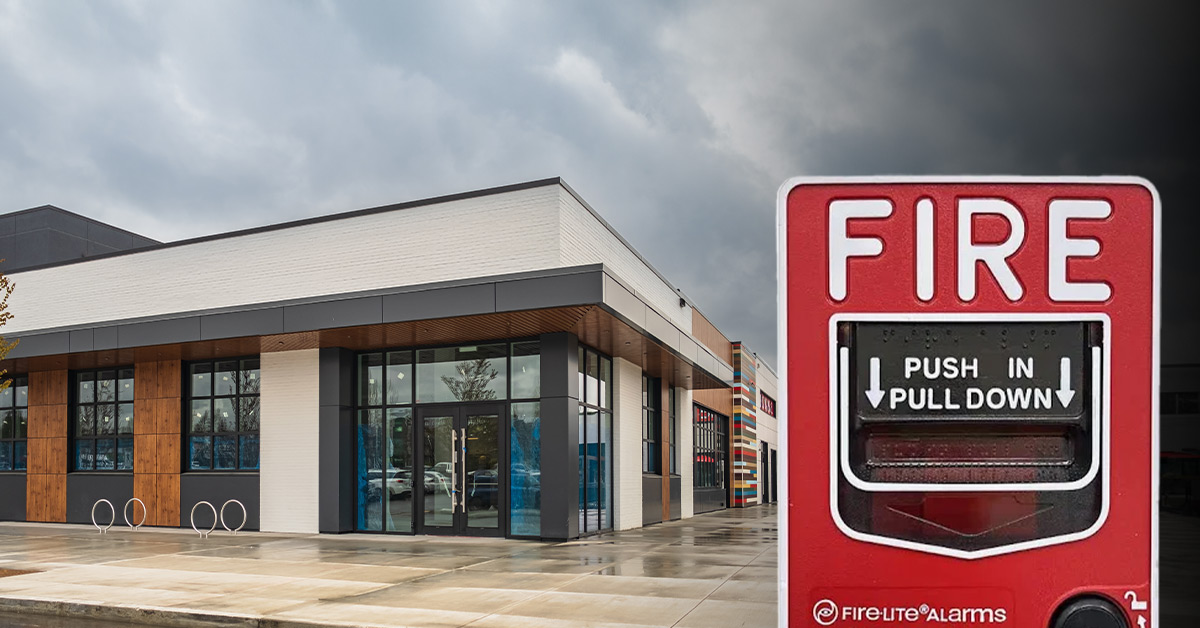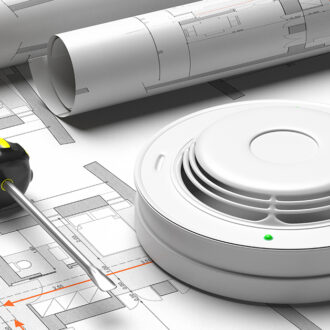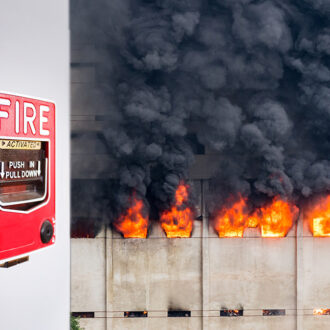
- Commercial Fire Alarm Systems
- Understanding The Importance of Fire Alarm Systems
- Legal Considerations for Silencing Fire Alarms in Florida: Prohibited Acts and Penalties
- When to Silence a Fire Alarm
- Steps to Take Before Silencing an Alarm
- How to silence a fire alarm?
- When should a silenced fire alarm system reactivate?
- When should you sound the fire alarm?
- What happens if you sound the fire alarm when there’s no actual risk?
- How long should a fire alarm sound before it can be silenced?
- Business Fire Alarm System Company
Commercial Fire Alarm Systems
As a business owner in Orlando or Central Florida, ensuring the safety of your employees and customers is paramount. However, false alarms or minor incidents can lead to unnecessary disruptions and panic. It’s crucial to know when and how to handle these situations. Fire alarms play a vital role in this safety ecosystem, but there may be times when you need to silence them to prevent unnecessary chaos.
Understanding The Importance of Fire Alarm Systems
A fire alarm system is a network of devices working together to detect fires early and alert occupants to potential danger. Here are the key components:
Control Panel: The brain of the system, processing information and triggering responses.
Smoke Detectors: Use photoelectric or ionization technology to sense smoke particles.
Heat Detectors: Identify unusually high temperatures or rapid temperature increases.
Manual Pull Stations: Allow anyone to trigger the alarm manually.
Notification Devices: Sirens and strobe lights that alert occupants.
Monitoring Station Connection: Links the system to emergency services.
Understanding how these elements work together is crucial for managing your fire alarm system effectively, including knowing when it’s appropriate to silence an alarm.
Legal Considerations for Silencing Fire Alarms in Florida: Prohibited Acts and Penalties
Legal Requirements:
- Authorized Personnel: Only trained personnel should silence alarms.
- Investigate First: Silencing without investigation is illegal and can result in fines.
- Notify Monitoring Stations: Inform monitoring stations before silencing for non-emergency reasons.
- Maintain Logs: Keep detailed records of all alarm events, including when and why alarms are silenced.
According to Florida Statutes 633.3482, it is a misdemeanor of the first degree for any fire alarm system contractor or certified unlimited electrical contractor to intentionally or willfully render inoperative any fire alarm system which is required by the State Fire Marshal’s rules, except when the system is being serviced, tested, repaired, inspected, or improved. Violations of this statute can result in severe penalties, including fines and legal repercussions.
When to Silence a Fire Alarm
Silencing a fire alarm should only be done when it’s safe and you’re authorized to do so. Here are the appropriate scenarios:
Confirmed False Alarms: After a thorough investigation confirms no fire risk, such as malfunctions, burnt food, or steam.
Minor, Contained Incidents: Once a small fire is quickly extinguished, and there is no further danger.
Post-Evacuation: After ensuring all occupants are safely out and no fire is present.
During Testing and Maintenance: When authorized personnel are conducting scheduled procedures.
Authorization by Trained Personnel: When fire marshals or building managers have assessed the situation and given permission.
Silencing an alarm is not the same as resetting it. Silencing stops the audible and visual alerts but keeps the system in an “alarm” state. Resetting returns the system to normal operation. Always ensure you understand which action you’re taking and why.
Steps to Take Before Silencing an Alarm
Before silencing a fire alarm, always follow these essential steps:
- Investigate the Cause: Thoroughly investigate the source of the alarm, looking for smoke, flames, or other signs of fire.
- Assess the Risk: Determine if there’s an immediate threat to life or property.
- Notify Authorities if Necessary: If a fire is confirmed, immediately call the fire department.
- Evacuate if Necessary: Initiate evacuation procedures if the situation warrants it.
How to silence a fire alarm?
The method for silencing a fire alarm varies depending on the system’s model and manufacturer. Consult your system’s manual for specific instructions. Typically, you’ll need to locate the control panel and enter a code or follow a sequence of steps to silence the alarm.
When should a silenced fire alarm system reactivate?
A silenced system should automatically reactivate if it detects new signs of fire. Many systems also have a timeout feature that reactivates the alarm after a set period if not fully reset.
When should you sound the fire alarm?
Activate the alarm immediately if you see smoke, flames, or any other clear sign of fire. Always err on the side of caution.
What happens if you sound the fire alarm when there’s no actual risk?
Triggering a false alarm can have serious consequences. These may include legal penalties, financial costs for emergency response, business disruption, and damage to your company’s reputation.
How long should a fire alarm sound before it can be silenced?
There’s no set time limit. The priority is ensuring everyone has evacuated safely. Alarms typically sound until emergency responders arrive and give the all-clear.
Business Fire Alarm System Company
Managing fire alarms is a critical responsibility for any business owner in Orlando and Central Florida. By understanding when and how to silence alarms properly, you’re not just complying with regulations – you’re actively contributing to a safer environment for everyone in your building. Remember, when in doubt, always prioritize safety over convenience.
If you need expert guidance on fire alarm systems or any electrical services for your Orlando or Central Florida business, don’t hesitate to reach out to Palmer Electric. Our team of professionals is here to help ensure your business stays safe and compliant. Give us a call at 407-646-8700 to discuss your fire safety needs today. Let’s work together to create a safer environment for your business, employees, and customers.




